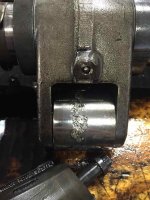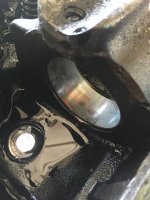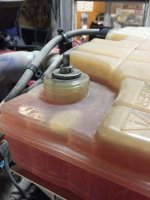jfaulkner
Douche Hunter
That's not true. Your sales people will say that. Your mechanics know the difference and all suggest doing **** right. Just because it's preached at a sales level doesn't mean people are dumb to doing things right. 90 percent of guys will tell you exactly what problems are
I don't mean any disrespect from my previous post, however you can always tell a mechanic that's been factory trained. It's not their fault either, if your only experience with something is what they pounded into your head in your tech classes your going to come out of there thinking what they say is written in stone. Take Cat liner protrusion for example, book says (which would be the same crap they teach at school). Notice the part in red, a factory trained guy will tell you your .002 is "within spec" and bolt it back together. Someone that's been down this road and paid out of pocket to fix this will be a tad bit reluctant to believe the mechanic that told him 50k oil changes is "within spec" when it was taught by the same guys that feels this is acceptable.
Table 2 Specifications Liner Projection
0.025 to 0.152 mm (0.0010 to 0.0060 inch) Maximum Variation In Each Liner
0.051 mm (0.0020 inch) Maximum Average Variation Between Adjacent Liners
0.051 mm (0.0020 inch) Maximum Variation Between All Liners
0.102 mm (0.0040 inch)



